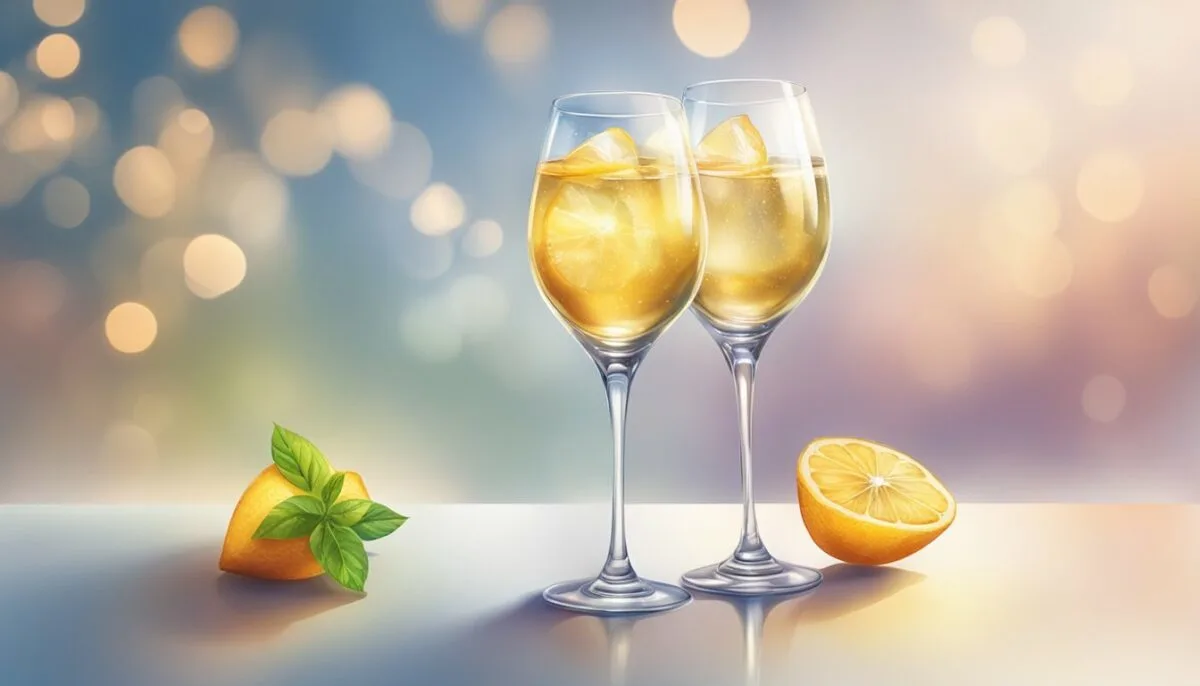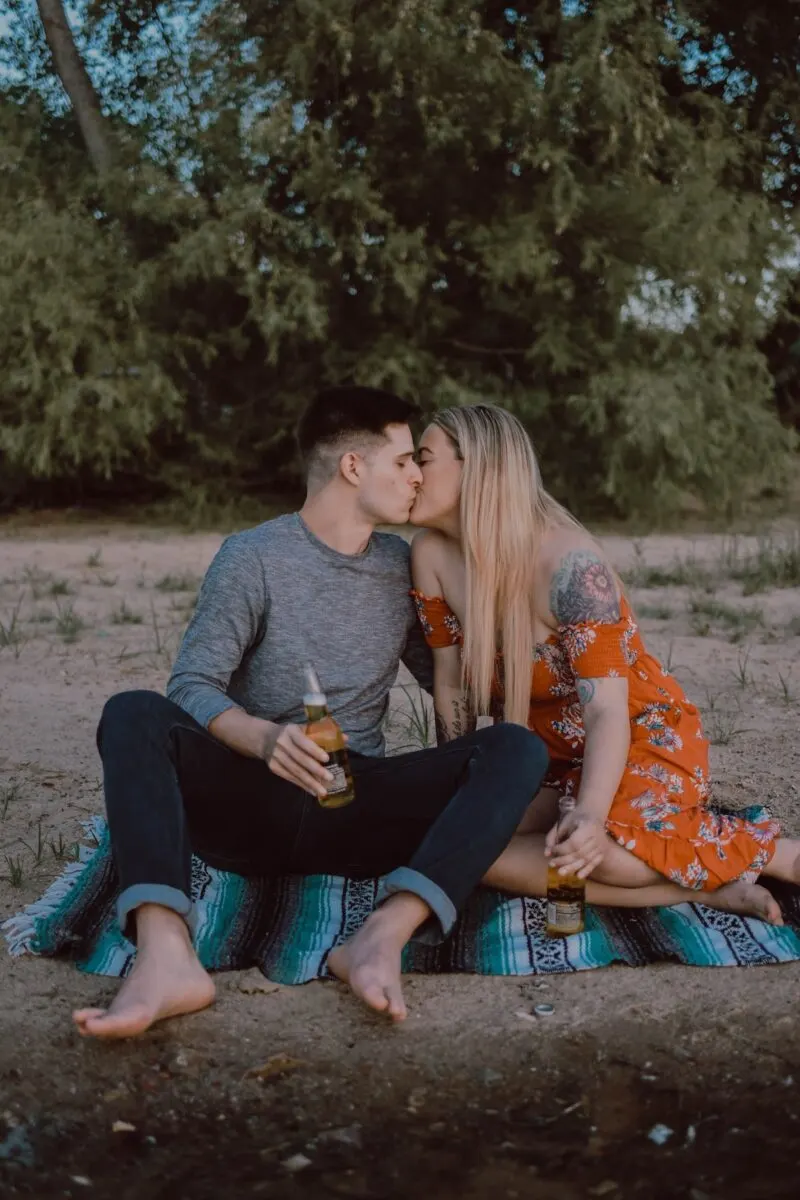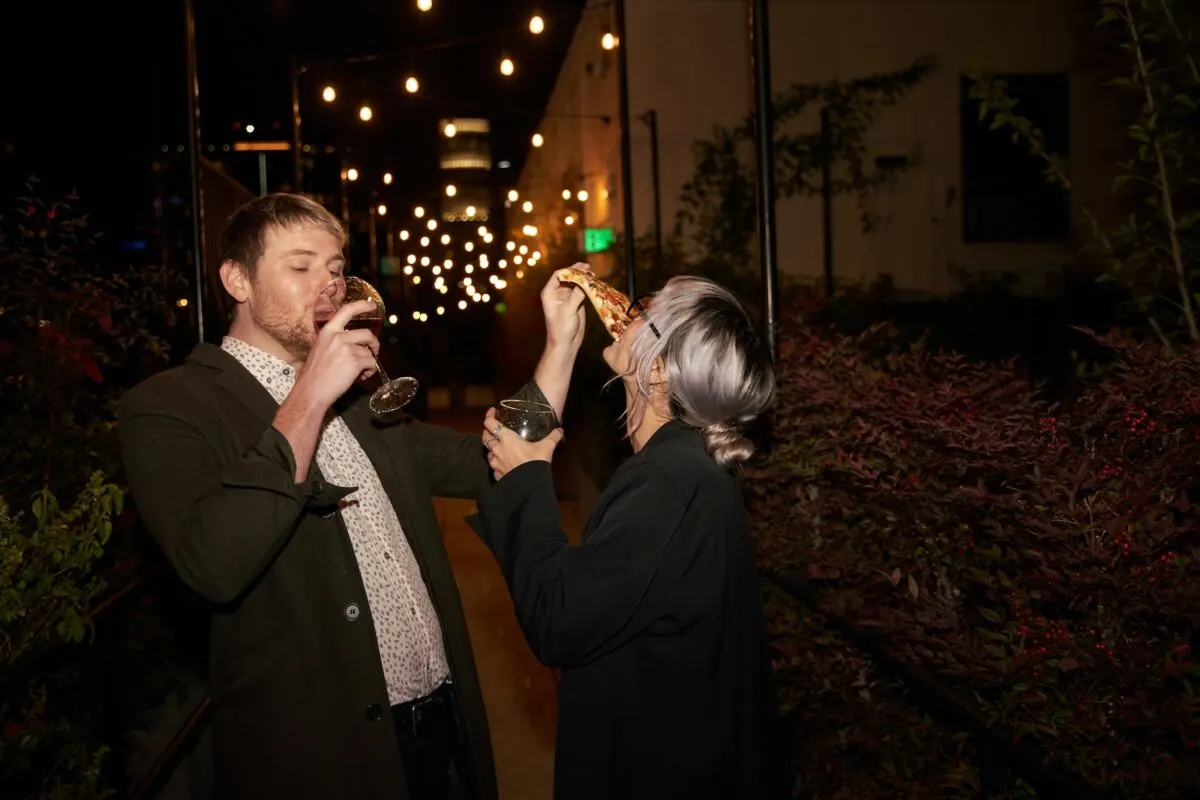Drunk kisses can be confusing, leaving you with many questions about their significance and their meaning for your relationships. When alcohol enters the picture, it can lower inhibitions and blur the lines between friendly affection and romantic pursuits, potentially leading two people to act on feelings they may not have considered otherwise.
The psychology behind drunk kisses is complex, influenced by factors such as the level of intoxication, the existing relationship between the individuals involved, and the situation that led to the kiss itself. Understanding the context in which the kiss occurred can help you determine whether it was a one-time slip-up or indicative of something more profound. Furthermore, reflecting on the emotional and social consequences of the kiss can provide valuable insights into your feelings and those of the person you shared the moment with.
Key Takeaways
- Drunk kisses can be complicated and influenced by several factors, including the level of intoxication and the existing relationship between the individuals.
- Understanding the context of the drunk kiss can help determine if it was a one-time mistake or a sign of deeper feelings.
- Reflecting on the emotional and social consequences of the kiss can provide insight into your feelings and the intentions of the person you shared it with.
The Psychology of Drunk Kisses
When you’re under the influence of alcohol, your inhibitions tend to drop, which can lead to more spontaneous and impulsive actions. One manifestation of this impulsiveness can be engaging in a drunk kiss. Let’s explore some of the key factors that contribute to this phenomenon.

Attraction: Alcohol can heighten your sense of attraction to others around you. Although a drunk kiss might not mean you’re madly in love, it can indicate some level of attraction or curiosity you may have towards the other person. Sometimes, it might just bring out feelings you’ve had hidden beneath the surface.
Lowered inhibitions: In a more relaxed state, brought on by alcohol, human emotions tend to be less controlled. Your usual reservations might slip away, so you’re more likely to embrace emotional and affectionate gestures such as kissing. It’s important to remember that this can lead to acting on emotions that might not be as strong when sober.
Desire for connection: Often, when we’re drunk, we seek companionship, love, and affection. This increased craving for emotional connection can lead to expressing those needs through acts like a drunken kiss. However, the true feelings might be more about the need for connection and less about romantic love.
So, what does all this mean for you the next time you find yourself in a situation where you or someone else goes in for a drunk kiss? Here are some friendly reminders:
- Be aware of your surroundings and safety. Assess the situation and whether engaging in a kiss is appropriate or safe.
- Consider the emotions involved. Remember that a drunk kiss may be a mix of attraction, lowered inhibitions, and the desire for connection. It’s worth considering what feelings may have prompted the act.
- Reflect on your feelings. If you’re on the receiving end, take some time to think about your own emotions and how the kiss may have affected you.
By understanding the psychology behind drunk kisses, you can better navigate the emotional landscape and interactions that may arise when under the influence of alcohol.
Is Drunk Kissing Someone Else Cheating?
When you find yourself in a situation where you or someone you know has kissed another person while intoxicated, the question inevitably arises: is this considered cheating? The answer can be subjective, as opinions may vary based on individual preferences and perspectives.

From the provided search results, it’s evident that many people regard passionate kissing as an act of cheating, even when alcohol is involved. Such acts cross the boundary of fidelity in a monogamous relationship, indicating a breach of trust and commitment. However, a simple peck on the cheek or quick, friendly lip contact may not be considered cheating.
It’s essential to consider the emotions and intent behind the act. If the drunk kiss stemmed from a momentary lapse in judgment and regret quickly followed, it might be easier to forgive and move forward. On the other hand, if the kiss resulted from deep-seated attraction or emotional connection, it might be more challenging to excuse.
Consider these factors when determining if drunk kissing is cheating:
- Context: Was it a spontaneous, friendly gesture or driven by ongoing romantic feelings?
- Communication: Have you both discussed boundaries and expectations regarding fidelity and physical contact with others?
- Regret and remorse: Is the person genuinely sorry and committed to repairing any damage caused by the act?
- Strength of the relationship: Can your relationship withstand such an incident, and is it built on trust and communication?
Ultimately, it’s up to you and your partner to agree upon what constitutes cheating and the expectations within your relationship. Maintaining open and honest communication is essential to navigate complex situations like this.
Level of commitment to your partner
When it comes to a drunken kiss, your commitment to your partner holds significant importance. In a committed relationship, trust and loyalty are essential, and any form of infidelity, even a kiss under the influence of alcohol, can be detrimental to the bond you share with your partner.

On the other hand, if your relationship is relatively new and you are still getting to know each other, the consequences of a drunken kiss may not be as severe. Feelings of regret usually follow a drunken kiss, and assessing your level of attraction and deeper feelings towards your partner is crucial. You might need to step back and evaluate if the kiss was an isolated incident or a sign of something more serious lacking in your current relationship.
The incident of a drunken kiss can leave you feeling betrayed and may lead you to question the trust you share with your partner. Yet, it is essential to have open communication and discuss the situation honestly. Gauge your feelings for each other, and decide if forgiveness is a viable option to move forward.
In some cases, the impact of a drunken kiss may lead to a breakup. It is crucial to assess the value of your relationship and attachment to your partner before making drastic decisions about your personal life. Remember, every relationship is unique, and the outcome relies heavily on the individuals involved and their ability to navigate challenging situations together.
Can a drunken kiss be forgiven?
When it comes to the question of whether a drunken kiss can be forgiven, the answer may depend on several factors. It is crucial to consider the context and relationship between the individuals involved and the personal values and feelings of the person trying to forgive the action.
Assessing emotions and motivations
First and foremost, you need to consider your feelings and emotions. Ask yourself if you feel betrayed, hurt, or angry about the drunken kiss. Reflecting on your emotions will help you better understand your expectations within the relationship. It’s also crucial to consider the intentions behind the kiss. Was it a spontaneous act driven by intoxication, or did the person have underlying feelings for the other individual?
Understanding the context
Understanding the context of the drunken kiss is vital. Think about the situation and what led to the kiss. Was it during a celebration or a challenging time in your relationship? Evaluating the context can provide insight into your relationship’s motivations and possible consequences.
Open communication
An open and honest conversation with your partner about the incident is essential. Discuss your feelings, the circumstances surrounding the kiss, and any possible repercussions. This dialogue can help you both understand the extent of the impact and consider if forgiveness is possible.
Rebuilding trust
In many cases, rebuilding trust is crucial when deciding whether to forgive a drunken kiss. You may ask yourself:
- How was the trust between you and your partner before the incident?
- Are both of you willing to try to repair that trust?
- What steps can you take together to ensure this won’t happen again?
Remember, rebuilding trust is a process that may take time and effort from both individuals involved.
Every relationship is different; only you can determine if a drunken kiss can be forgiven in your situation. By considering your emotions, the context, effective communication, and trust-building, you can make a well-informed decision that best suits your relationship.
Who made the first move?
When it comes to drunk kisses, the person who makes the first move can significantly influence the situation’s dynamics. You may wonder if taking the initiative when alcohol is involved has any significant meaning or if it’s just the alcohol doing the talking.

In many cases, boldness can be attributed to the influence of alcohol. People sometimes become more adventurous and outgoing when they’re under the influence. This might lead someone to make the first move, even if they’re usually shy or reserved. On the other hand, someone who’s already confident and outgoing might be more likely to initiate a kiss, whether intoxicated or not.
Some factors to consider when trying to interpret a drunk kiss initiated by either party:
- Context: Where you are, who you’re with, and what’s happening around you can all influence the likelihood of a drunk kiss happening. For example, a crowded, high-energy party might create a more conducive atmosphere for spontaneous kisses than a quiet gathering with close friends.
- Individual personalities: Each person’s disposition and approach to relationships can play a role in who makes the first move. One person might be more forward and assertive, while the other might be more passive or cautious.
- Shared history: If you and the other person have a history of flirting or romantic tension, it could be an indication that the drunk kiss was a more intentional choice and not solely driven by alcohol’s effects.
To sum up, when analyzing a drunk kiss, it’s important to take all of these factors into account and not just focus on the alcohol’s role. By doing so, you’ll better understand who made the first move and what the act might signify. And don’t forget, always engage in consensual and respectful interactions, no matter the circumstances.
Do you even remember your drunk kiss? Has it happened before?
You might be wondering if your drunk kisses mean anything, especially if you can’t remember them or if they’ve happened before. While you may not recall the details of your intoxicated escapades, it’s important to consider the context of the situation and understand how alcohol and memory intertwine.
Alcohol and Memory
Alcohol can significantly impair your memory, especially when consumed in large quantities. In some cases, it may cause memory blackouts, which are periods during which you cannot recall events or details while intoxicated. While traumatic situations could potentially leave lasting imprints in your mind, alcohol has the power to disrupt your recollection of events – even those as seemingly significant as a drunk kiss.
Factors to Consider
When trying to make sense of your drunk kiss, consider the following factors:
- Frequency: Is this an isolated incident, or has this happened multiple times with the same person?
- Relationship: Do you and the person you kissed have an existing romantic history, or do you share mutual feelings?
- Circumstances: Were you in an environment where such behavior might be more likely to occur, such as a party or a social gathering?
Evaluate the Situation
It’s essential to evaluate the situation from a sober perspective. If you don’t remember the kiss or the circumstances surrounding it, you can seek clarification from friends who were present or the person you kissed.
Keep in mind that not every drunk kiss holds a deeper emotional meaning. Sometimes, alcohol lowers your inhibitions and leads to actions that you wouldn’t necessarily engage in while sober. If this is an episode you’d like to forget, it’s perfectly okay to do so. Remember, you have many other important things to focus on, and dwelling on a drunk kiss might not be worth your time and energy.
In conclusion, while it’s possible that your drunk kisses had deeper meanings, it’s important to assess the situation and consider the context in which they happened. Don’t hesitate to communicate your thoughts and feelings with the person involved if you believe it’s necessary. And most importantly, stay responsible when consuming alcohol to avoid regrettable actions in the future.
Why am I so flirty when drunk? Strategies for Prevention and Control
You might have noticed that you tend to be more flirtatious when you drink alcohol. This is because alcohol lowers inhibitions and increases emotions, creating a perfect storm for physical affection. But sometimes, this behavior leads to regret and undesired consequences. This section will explore some strategies to help you prevent and control this tendency.
Know your limits: Knowing how much you can drink before you start getting overly flirty is essential. Keep track of your alcohol consumption and set a limit you can comfortably handle without crossing the line. This will help you avoid situations where you might misbehave or feel regret the next day.
Choose your drink wisely: Some types of alcohol might make you feel more flirtatious than others. For example, you might find that certain cocktails or wines make you feel more romantic than beer or hard liquors. Stick to drinks that don’t put you in an overly expressive mood.
Practice mindfulness: If you notice that you’re getting more flirtatious while drinking, take a moment to check in with yourself. Assess how you’re feeling and consider whether this is the way you’d want to behave sober. Practicing mindfulness can help you become more self-aware and curb your flirtatious tendencies.
Establish boundaries: Before going out, remind yourself of your flirting and physical contact boundaries. Make a mental note of what is and isn’t appropriate behavior, and stick to these guidelines throughout the night.
Use the buddy system: Having a trusted friend while drinking is always a good idea. They can help you monitor your behavior and remind you of your boundaries if you get too flirty. Please make sure they’re aware of your goals and can keep an eye on you throughout the night.
By implementing these strategies, you can enjoy your night out without worrying about waking up with regret or facing undesired consequences. Remember, alcohol should be consumed responsibly and in moderation to ensure a fun and safe experience for all.
Frequently Asked Questions
Cheating is complex, varying from person to person and relationship to relationship. Some might argue that kissing someone else while intoxicated is cheating, while others might believe that the effects of alcohol can lead to unintentional actions and give their partner a pass. Communicating openly with your partner about your views and feelings on this matter is essential.
If someone only kisses you when they’ve been drinking, it could mean that they have some level of attraction towards you but might not have the courage or confidence to express it when sober. Alcohol reduces inhibitions and acknowledges that it does not necessarily represent the person’s true intentions. It is crucial to have an honest conversation with the person about how they genuinely feel and determine if their actions align with their feelings.
Feelings about a partner kissing someone else while drunk can vary depending on your relationship’s dynamics, trust, and communication. It is expected to feel hurt or confused. What is essential is how you navigate through these emotions with your partner. Openly discussing your feelings and your partner’s actions will help determine the best course of action for your relationship moving forward. Every couple must decide what works best for them based on their circumstances.
A drunken kiss might have different meanings depending on the individuals and context involved. Sometimes, it may be a spontaneous act fueled by lowered inhibitions, with little significance beyond the moment. In other instances, a drunken kiss may reveal underlying feelings or attractions that have been hidden. It’s essential to consider the situation and, if necessary, discuss the occurrence with the parties involved to clarify its meaning and significance.
